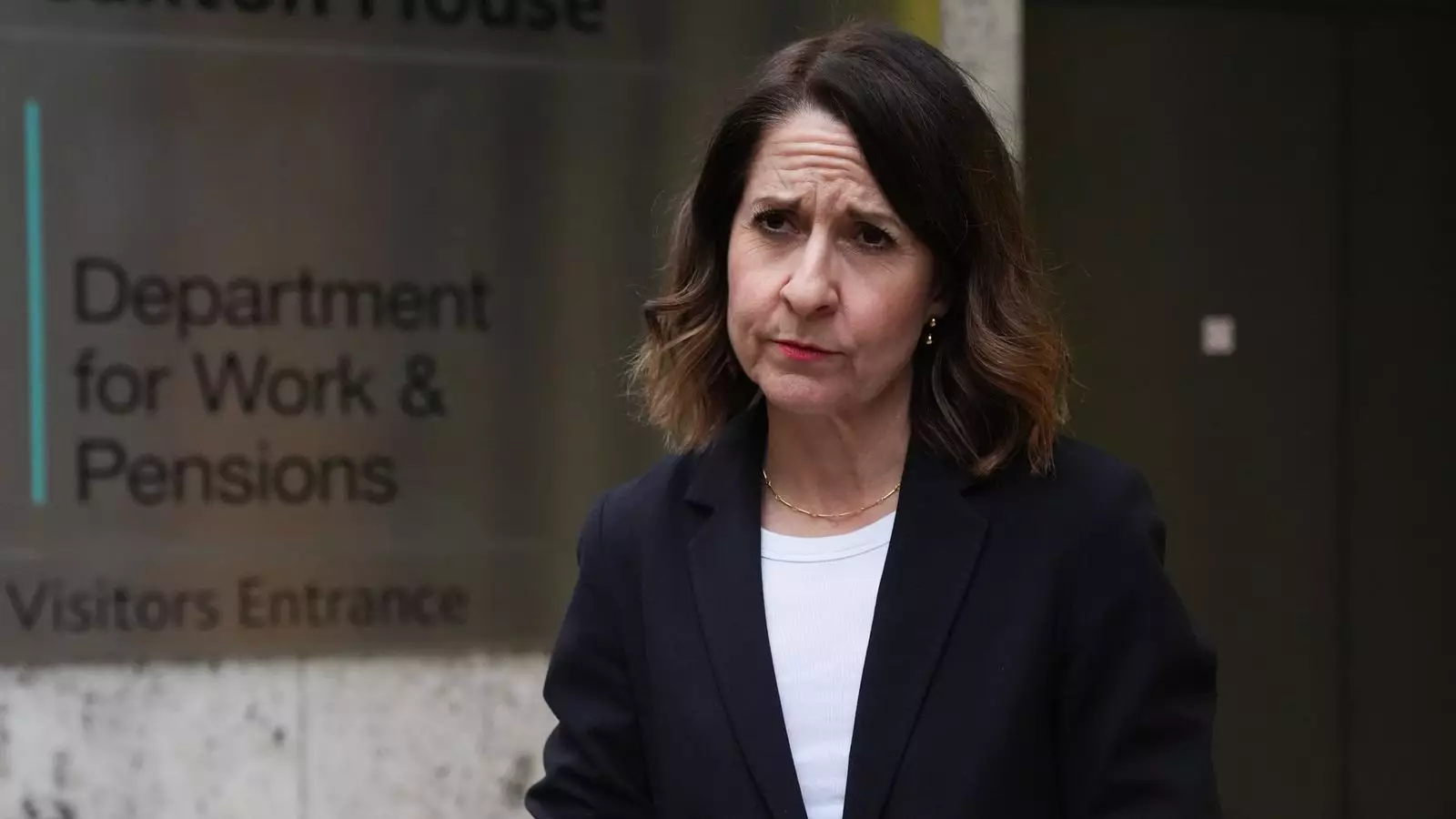The recent proposals to freeze disability benefits, a topic that has ignited fierce debate, highlight the troubling nature of current welfare policies in the UK. While Labour politicians are reportedly pushing back against these cuts, the very discourse around welfare is emblematic of a system failing its most vulnerable citizens. The complexities of this situation cannot be understated. The government claims to need fiscal responsibility, yet the well-being of approximately four million working-age adults relying on incapacity or disability benefits becomes collateral damage in their quest to “get a grip” on the welfare budget.
The chilling reality is that proposed cuts to benefits, such as the Personal Independence Payment (PIP), essentially target the wrong end of the fiscal equation. Instead of addressing inefficiencies or misuse elsewhere in the welfare system, the focus is on those already struggling to make ends meet. The idea that the welfare budget is “not working for anyone” needs to be closely scrutinized. Instead of freezing benefits, it’s crucial to re-evaluate how funds are allocated and consider a long-term overhaul rather than short-sighted cuts.
Understanding the Human Cost of Policy Changes
The idea of freezing benefits poses severe consequences for individuals who rely on these funds for their day-to-day living. Disabled people often face significant barriers to employment, and though the government may suggest that work is key for better mental health and physical well-being, this ignores the complexities of their experience. The term “right to try” has been branded casually, but for many, the anxiety of potentially losing their safety net can deter them from pursuing employment altogether. A smart government should foster an environment that encourages work without jeopardizing essential supports; the current track appears oblivious to this reality.
Research showing a sharp rise in young people suffering from mental health conditions complicates this conversation even further. The system, as it stands, is failing those who are most vulnerable. Indeed, with such a significant percentage of individuals experiencing health-related challenges, instilling an environment of fear among them will not foster greater productivity or general societal benefit.
“Taking the Micky”: A Dangerous Narrative
The Labour Secretary’s comment about some individuals on benefits “taking the mickey” reflects a damaging stereotype. While some cases of fraud certainly exist, aiming to stigmatize all recipients of disability benefits under this blanket assumption is not just naive but also unethical. The fact remains that the majority of individuals on such benefits genuinely require them and contribute positively to society in ways that may not be immediately measurable.
Moreover, targeted rhetoric, such as this, only deepens societal divisions and encourages a narrative that pits working individuals against those relying on welfare. The argument against supporting vulnerable populations does little more than create an atmosphere of mistrust, which in itself can lead to further alienation of marginalized communities.
Alternatives to Draconian Cuts
If the government is genuinely interested in “protecting” vulnerable individuals while also being accountable to financial constraints, they should explore alternative methods. For instance, evaluating the eligibility criteria can be done in ways that maintain dignity for the affected. Reassessing current support systems to identify genuine cases needing assistance will ensure a fairer distribution of resources.
Programs that offer staggering support and opportunities for disabled citizens to transition into the workplace without fear of losing their benefits are a step toward a more equitable society. Instead of seeing welfare as a burden, it should be viewed as an investment that allows individuals to reclaim independence and contribute more effectively to societal and economic well-being.
Our Collective Responsibility
As citizens, we must challenge the narrative crafted by those in power that seeks to undermine the very fabric of our community’s social safety nets. Welfare is not merely a fiscal item in the government’s ledger; it embodies our values as a society that professes to care for all its members, especially the vulnerable. They deserve support systems that encourage personal growth and societal participation rather than an environment filled with fear and stigmatization.
Welfare reform should be a priority, but let it be driven by compassion, foresight, and an understanding that every individual has a role to play in our community. The conversation must shift from blame and denial toward empathy and proactive solutions, ensuring that we reinforce rather than dismantle the support systems that many desperately depend on.


Leave a Reply